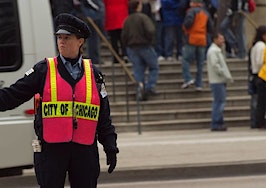- Facebook ads are great for promoting a featured listing or open house.
- Landing pages are the key to converting paid traffic.
- If you don't track your visitors, you'll never know what's working -- and more importantly, what isn't. Use Google Analytics to help you recognize patterns and adjust in the future.
If you haven’t begun testing Facebook advertising to promote your open houses or featured listings, you’re missing out. Sending potential clients to your designated landing pages can be an affordable way to promote properties — as long as you’re managing your ads properly.
A good place to start is learning what to avoid — thus, here are five mistakes agents make when running Facebook ads.
1. Using only one photo in ads
If you’re promoting a featured listing or an open house, you need to take full advantage of the display advertising that Facebook offers in boosted posts.
Agents often make the mistake of only posting one photo of the listing — this always leads to lower clickthrough rates. Add four high-resolution photos to your posts before boosting, and make sure your first image is an overview of the property.
2. Over-targeting
Facebook has some amazing features when it comes to targeting — you can target by age, gender, job title, income, net-worth, location and even by interests and shopping habits. And this only begins to scratch the surface of the targeting tools available.
Although it’s impressive, the variety of options makes it easy to over-target and create an extremely narrow audience. Avoid this at all costs.
You want your parameters to be big enough to attract a large audience, but not so big that it’s completely untargeted. Striking a balance is key to running successful campaigns.
3. Using weak landing pages
Getting someone to click on your Facebook ad is half the battle. The next challenge is converting the traffic into new opportunities for yourself.
If you’re sending your traffic to a landing page that’s missing key details, doesn’t have a lead capture form or has loading issues, you’re not going to convert your traffic into leads.
4. Not tracking visitors
If you don’t track your marketing efforts, it’s impossible to know whether your initiatives are hitting your set goals. Tracking your visitors is essential to evaluating your campaign — and though it might be one of the trickier parts of running a Facebook ad campaign, a tech-savvy agent should have no trouble.
Make sure you have Google Analytics setup properly on your website and evaluate where people are clicking, where they are exiting your page and how long they’re spending on your website. These numbers will give you insight into your campaign and let you know where you need to make adjustments next time.
5. Not installing a tracking pixel
You can set up a tracking pixel by heading to your Facebook business account and clicking on the “Pixels” tab. Installation is as simple as emailing your webmaster a piece of code provided by Facebook.
Once this is setup, you’ll be able to create a custom audience that includes anyone who has clicked on your ads and visited your website.
The next time you run a Facebook ad campaign, you’ll be able to target this custom audience — a huge win because they’ve already visited your website and are somewhat familiar with your brand. It’s a great way to target low-hanging fruit.
If you setup your campaign properly, Facebook advertising can be an extremely effective tool at your disposal. Don’t be afraid to test out a small budget and adjust on the fly. Even a small Facebook campaign can pay huge dividends when it comes to promoting a listing or open house.
Justin Kerby is the co-founder of CAVE Social.








